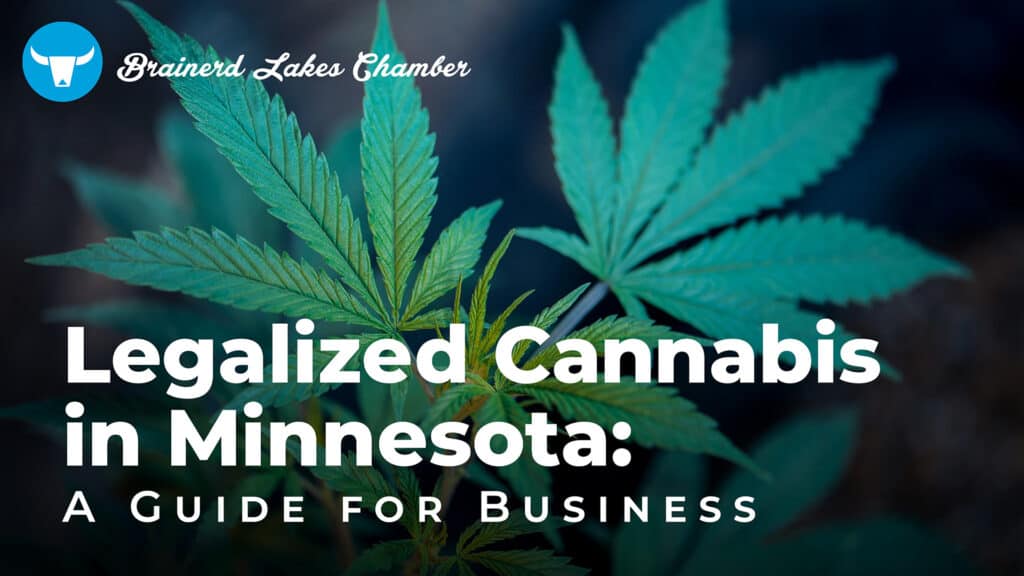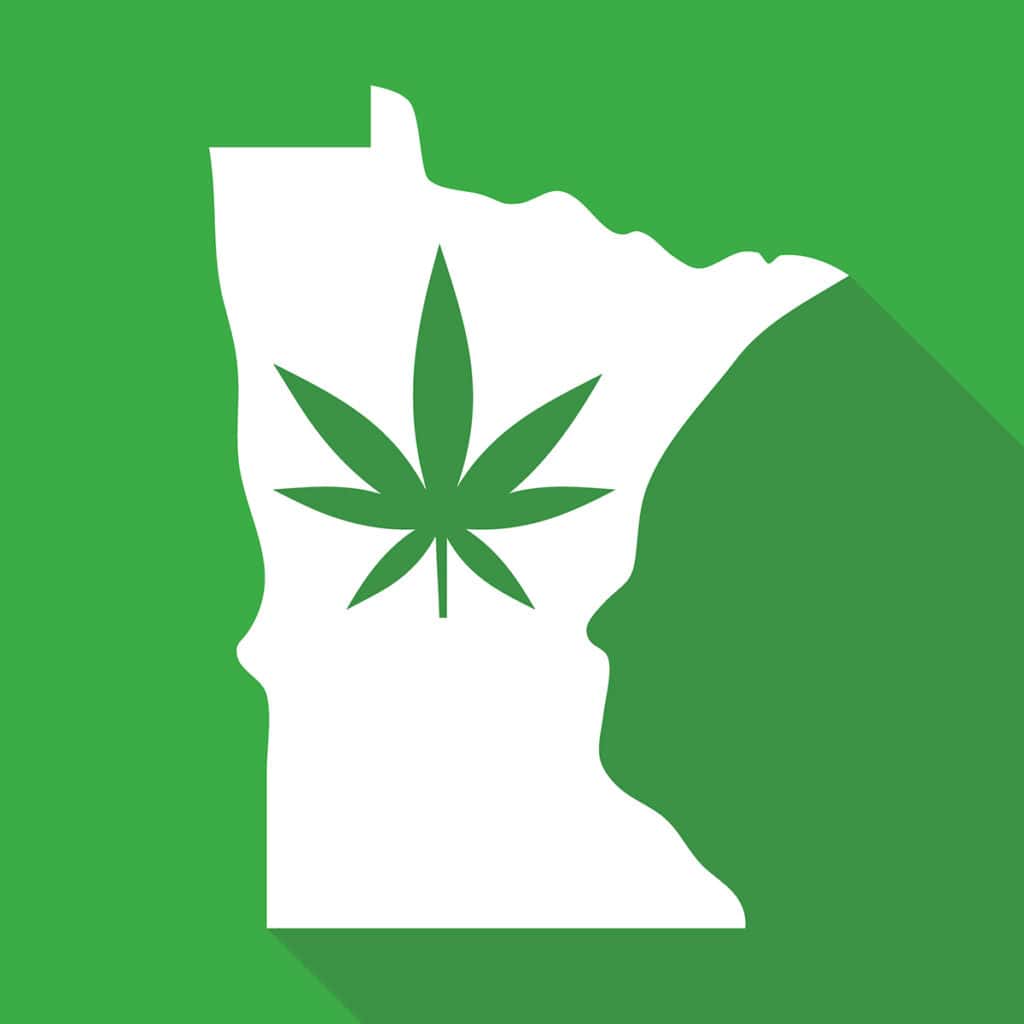
Legalized Cannabis in Minnesota: A Guide for Business

By Trisha Reilley, Tourism Marketing Manager
Brainerd Lakes Chamber of Commerce
Facebook
Twitter
LinkedIn
We recently hosted a Legalized Cannabis: What Your Business Needs to Know webinar facilitated by Winthrop & Weinstine, a Minneapolis-based law firm. They have been fielding questions and providing advice on employment and cannabis.
In case you missed the live webinar, here are key takeaways that will help your business navigate the new law.
The New Cannabis Law
- Cannabis is now a “lawful consumable product” under Minnesota law.
- Cannabis is still unlawful under federal law, and employers must comply with testing requirements for employees regulated by federal law (e.g., DOT requirements).
Lawful Consumable Products
- Employers shouldn’t refuse to hire, discipline, or discharge an employee because of lawful cannabis consumption if the use takes place off the premises of the employer during non-working hours.
- Employers still have the right to discipline or discharge an employee for cannabis use, possession, impairment, sale (or transfer), during work hours, on work premises, or while operating an employer’s vehicle, machinery, or equipment.
Pre-Employment: Hiring
- An employer may refuse to hire for a positive cannabis test and make an offer contingent on a negative test for only for certain positions, including:
- Safety Sensitive Positions: “a job including supervisory or management position, in which impairment would threaten the health and safety of any person.”
- Other positions under this exception (police officers, working with vulnerable groups, positions requiring commercial driver’s licenses, etc.)
- Employers should update job descriptions and determine roles that are “safety sensitive positions”.
Lawful Use During Employment
- Employers shouldn’t discipline or terminate an employee that engages in lawful use, if:
- Use occurs off employer property, and
- Use occurs during non-working hours.
- Employers should have a written cannabis policy for disciplinary action or termination.
- The situation can be complicated, especially when determining use or impairment.
- Reasonable Suspicion Testing Policy: create a thorough policy to help navigate the uncertainty of whether an employee should be reasonably suspected of being under the influence of cannabis.
During Employment: Reasonable Suspicion Checklist
- Regular documentation or observation of employee performance, appearance, attitude/disposition to establish baseline is a good practice.
- Recommend having more than one person observe and document employee behavior.
- Recommend getting witness statements from other employees, if needed.
Update Policies and Procedures
- Recommend updating drug and alcohol policies to address cannabis use and prohibitions permitted by statute.
- Cannabis generally cannot be considered an “illegal drug”
- Update and provide tools to managers to address and respond to employee impairment situations.
Restricting Customer Cannabis Use at Your Business
- Businesses not licensed for on-site consumption may face legal liability for customer’s recreational use on their property.
- Only permitted place for consumption are: 1) private residence, 2) private property (unless owner objects), 3) establishment licensed to permit on-site consumption.
- Doesn’t apply to medical cannabis use.
- Cities and counties are considering ordinances that prohibit smoking or vaping cannabis in a public place, a place of public accommodation, or a place where the smoke can be inhaled by minors.
- Ordinances likely would include public areas (parks, sidewalks), and any private business whose goods, services, facilities, or accommodations are extended, offered, sold, or otherwise made to the public.
Helpful Links
If you’re looking for more information, check out these resources.






